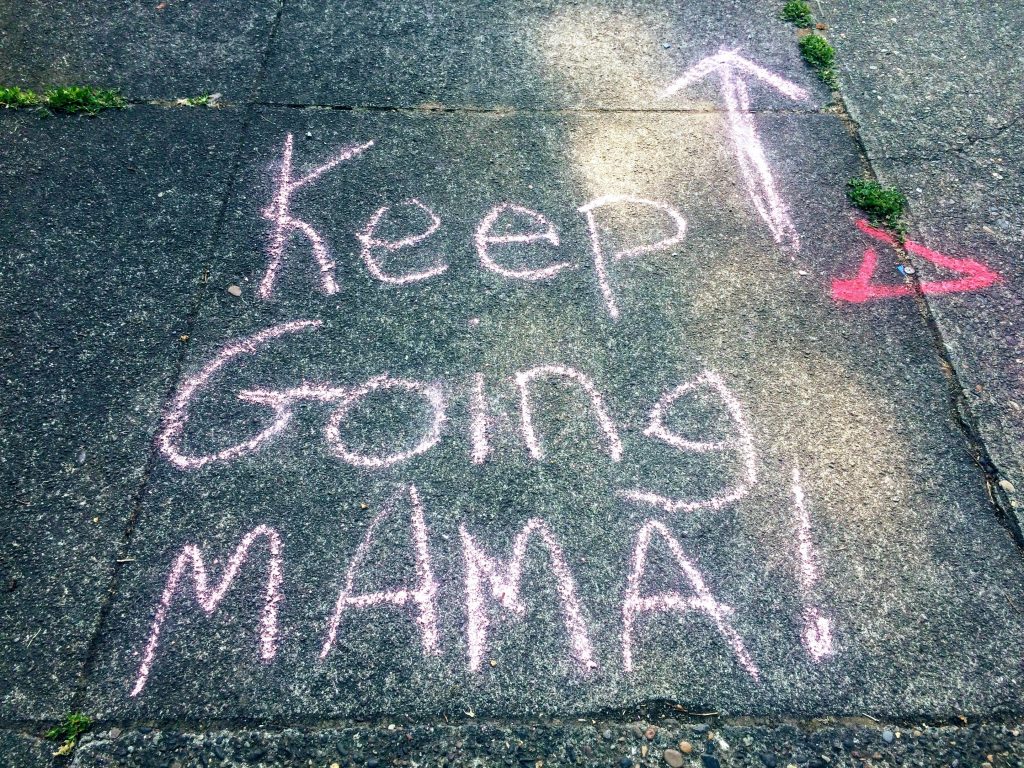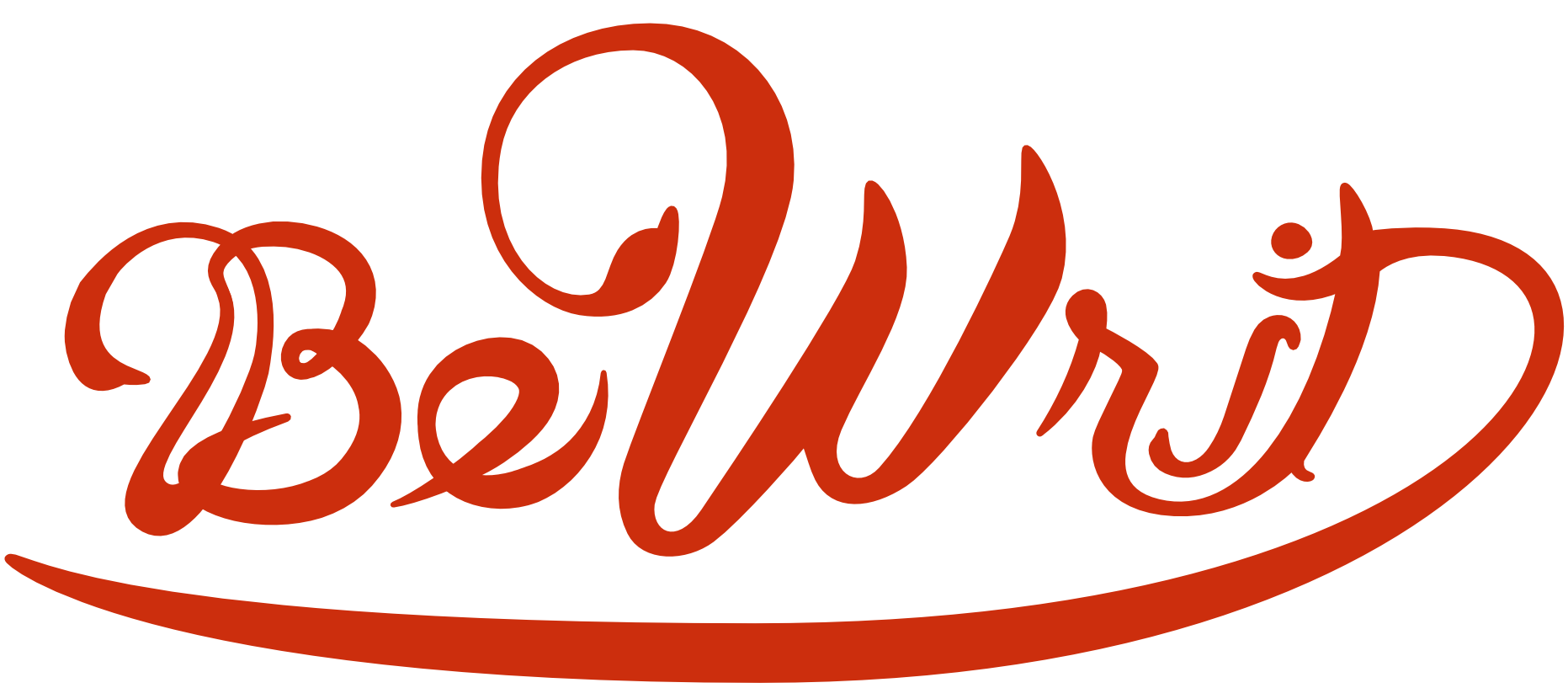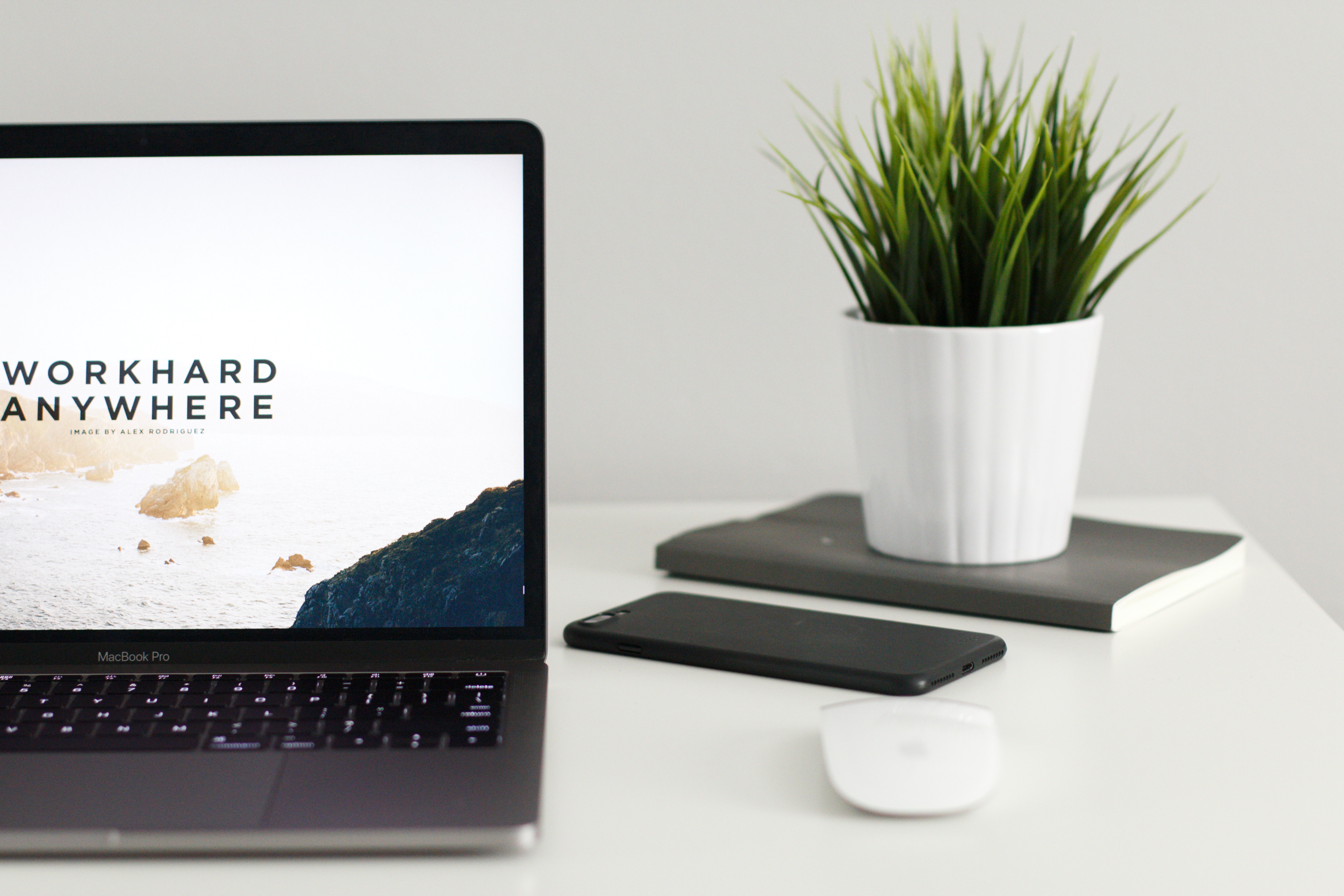
24 Things I Wish I Knew Before I Became a Full-Time Freelancer
Are you thinking about freelancing full-time? Becoming a full-time freelancer is daunting, challenging, and incredibly rewarding. I jumped in six years ago and have learned a LOT about myself and the writing world ever since. Here's what I think you should know.
Why I'm Feeling All Introspective

For my birthday each year, I like to reflect on everything that happened - my accomplishments, the goals I reached, any major events or successes, etc. My list typically includes personal and work-related performance.
This year I turn 31, and the year marks six years of freelancing for me. Maybe it's my self-reflective age, the amount of time I've now spent as a freelancer, or the huge changes my career has taken over the years - but I keep thinking about the many things I wish I knew before I joined the freelance world full-time.
And this year was FULL of career growth to reflect on!
I grew BeWrit to 3,000 monthly page views, I wrote articles that made it to Google's first page, and I got my published writing in well-respected publications like FundsforWriters and Live Write Thrive.
I'm also excited to announce that I was recently offered a full-time Content Writer position with an advertising agency called Human. The deal was too good to pass up, so I start on Monday and will relocate to Boulder, CO in the coming weeks.
I have thoroughly enjoyed my time as a freelancer. I will miss every moment. Saying goodbye is surreal. But this next step will mean great things for my career, my family, and for the site.
The new job will also mean a few changes to BeWrit.
Moving forward, my focus may center more around authoring books rather than freelance writing. I may still offer freelancing tips due to my experience, but it doesn't seem right to focus on the topic as much if I'm no longer freelancing myself.
However, I fully plan on continuing to help writers through:
- Weekly resources
- Monthly blog posts
- Monthly newsletters
- Editing services
If you need help writing your first novel or want an editor you can trust with your manuscript, I'm still here for you. BeWrit will go on!
I'm also looking for writers to help with the blog. Check out our Write For Us page if you're interested.
24 Things I Wish I Knew About Freelancing Full-Time

No matter your industry, here are my ultimate tips for going freelance full-time. Take what applies to you. Use it to prepare for your full-time freelancing venture - because becoming a freelancer very much is a journey.
1. Set a Schedule for Yourself
The first thing you encounter as a freelancer is transitioning from a 9 to 5 to a world where you set your work hours. You can wake up early or work late at night. In How to Use Flexible Work Schedules to Reach Your Writing Goals, we even discuss finding a time that you're naturally at your most productive and setting a schedule for yourself based on that.
Whenever you decide to work, the main point here is to set regular working hours. Doing so triggers your brain to switch into work mode and helps you maintain productivity. Plus, you may have some clients that need to know when they can contact you.
2. Create a Productive Workspace

When I started freelancing, I took "work anywhere" too literally. At first, I spent much of the time hunched over my laptop in bed. Even today, I spend too much time working on the couch. But as I learned, you need to spend most of your time working in a productive, ergonomic space.
I cannot stress enough how important your workspace is in terms of your productivity and your health.
After a few months of working in bed, I suffered from back pain. Now, I struggle with wrist and hand pain. I also learned that working in these areas has severe repercussions for separating my work and home life. My sleep cycle suffered the most.
Don't follow my lead. Instead, designate a workspace that's good for you. A home office is great if you can afford it. At the very least, get a desk and a chair with top-rated lumbar support.
In my article, 20 Tips to Create a Productive Workspace Wherever You Are, I also talk about other ways to boost your workspace - like incorporating natural light, plants, and one of my top tips, noise-canceling headphones.
3. A Morning Routine is Everything
How you start your day becomes vital when you work for yourself. No one tells you what to do and when. You have to do this for yourself.
How do you know you need a new morning routine? The first clue I noticed that pointed toward a new morning routine for me was that I would crash every workday afternoon. I started freelancing by waking up at my leisure and spending countless hours reading before I realized it was killing my daily productivity.
Another thing I noticed is that my willpower would drastically reduce as the day wore on. By the afternoon, I often didn't care about working if I was tired.
So I looked into morning routine ideas for writers to see what works for other people and learned how to make a new habit that fit my freelance life.
Habit formation is a tricky subject. The same tricks don't work for everyone. In How to Write Smarter: 5 Basic Steps to Create a Writing Habit, I wrote about the basic steps I found the most helpful for creating a freelance writing routine. You can use the basic steps even if you're not a writer.
4. You Have to Beat Procrastination

Procrastination and writers go hand-in-hand. Even if you're not a writer, freelancers tend to struggle with procrastination. Get ready to deal with it and find ways to manipulate yourself into working when you least want to.
The hard part about procrastination is that we all do it for different reasons, at varying times. But procrastination is a cancer that slowly eats away your productivity.
My article, 4 Ways to Stop Procrastination and Start Writing Today, targets the four most common reasons that writers procrastinate and how to stop it. However, these tips apply to any career path as well.
5. Creativity is Re-Chargeable
Have you ever created so much that you literally feel drained? I never knew this was even a real problem until I started writing full-time. That's when I learned the drained feeling means it's time to re-charge.
What Nature Does to Unlock Secret Creativity
You can also use these tips to Create Inspiration Wherever You Are.
6. Avoid Burnout with Regular Habits

Remember, you're not a machine. You need to slow down and take breaks occasionally.
As a freelancer, this is a tough lesson to learn because you wear so many hats - CEO, admin, finance, manager, HR, salesperson, designer, content creator, social media manager, etc. All these roles can make you feel overwhelmed or like a robot. But you're not.
And if you don't take a break, burnout will hit you. It's just a matter of time. The trick I learned is that you can Kick Word Fatigue to the Curb by asking yourself some serious questions and focusing on non-word-related tasks for a while. When writing becomes hard, go somewhere with no words.
Recreational activities like going for a walk through the park, hiking, gardening, dancing, and painting are a few of my favorites. Watching t.v. sadly does not work because it's still story-driven. Take a true linguistic holiday to find your creativity again.
7. Shoot High, Aim Low
Most freelancers have a high self-drive to get work done. But the most successful of them are also highly disciplined.
If you want to be at your most successful, shoot high but aim low. By this, I mean to strive to always do your best work, but don't expect to love every project or client you gain. Not every job will work out.
Most of the time, you probably will not reach the high goals you set for yourself. However, there are 10 Tried and True Ways to Double Your Writing that can help you get more done every week.
8. Always Use Contracts and W9s

Always utilize legal to protect yourself. Freelancers need to be on a constant lookout for new clients and jobs, so you quickly learn how to spot a job posting that seems fishy. However, people may still take advantage of you.
During 2020, right in the middle of pandemic lockdowns, I agreed to complete an 800-word paid test article for a company called HighCommerce. I found their job posting on ProBlogger, and I thought they seemed legit even though it was clear that English was not my contact's first language.
But after I submitted the test article, they never paid. They didn't even bother to respond to my emails.
Not only did I waste my time applying for a position I thought would result in 5,000 words of work per week, but I was also out of the time I spent writing and polishing the article.
Moral of the story: Ask for payment or a contract upfront to protect yourself.
9. Speak with Professionalism and Confidence
Freelancers need to network and talk about what they do all the time. Word of mouth is one of the best ways to find new clients and get your name out there. For this reason, one of the first things I learned when I started freelancing full-time is to speak with professionalism and confidence.
To do so, slow down. Avoid talking too fast or jumping in before the other person is done speaking. Cut filler words from your vocabulary, like uhhhh. Just breathe and stay in the present moment.
If talking to strangers makes you nervous at first, try practicing at home. Record your voice and listen to it later to see what areas you can improve upon.
10. Being Your Own Boss is Not Real

Like me, you were probably drawn to the idea of freelancing because you can be your own boss. But being your boss is not that simple.
Unfortunately, living the boss-life is a cliche that is not real. When you're freelancing, you don't feel like your own boss because you have many people you answer to regularly - your clients.
The difference is that instead of answering to a single main boss, you now have numerous bosses expecting things from you. It might not be a boss breathing down your neck every single day, but you are still accountable to others.
11. Understand the Difference Between Criticism and Constructive Feedback
Because you have multiple bosses (clients), you also have to get used to dealing with many different personality types regularly. Not all of the clients you gain will fit your work style. I hate to say it, but some may even hurt your feelings.
Learning the difference between criticism and constructive feedback was one of the hardest lessons for me to learn during my time as a freelancer. It's all about how your client or editor delivers the comment.
For example, I once had an editor send me a nasty email about a piece I wrote saying I needed to better edit. She rudely wrote out the definition of the word 'but,' claiming I didn't understand how to use it properly. To top it off, she commented a passive-aggressive "LOL!!!!!!" on the shared Google doc to my article - a few times. Turns out, I had an internet fluke and the doc didn't update with my final edits. I hadn't done actually anything wrong.
My point is that people who berate you are not the ones you want to work with on a regular basis. Work with people who provide constructive and useful feedback in a kind, professional method.
12. Remember Your Worth

You will get ridiculed eventually. People will try to pull you down. It's inevitable. When it happens, I beg you to remember your worth. This is one of the most important and difficult lessons for most freelancers.
Knowing your worth is how you will stand apart from other freelancers in your industry. It's how you'll get paid the salary you deserve, and it's how you'll grow in your hustle.
New freelancers, for example, fall into the trap of accepting low pay. I started my freelance career making $5 for 500 words on Fiverr. Do not do this. Stand your ground. Ask for the pay you deserve. Even new writers should earn at least $0.05/word, no less.
If you're having a hard time finding out what you're worth, check out You First: The Surprisingly Easy Plunge to Lifetime Success.
13. Never Work for Free
Because you want to avoid low-paying clients who don't care about you or the work you do, never work for free. This tip goes along with avoiding working for pennies, knowing your worth, and avoiding people who may not pay you for the work.
When you're new, you will find free trials tempting. But free work only perpetuates a terrible idea that writers and creative freelancers are expendable. Do not settle for less than what you deserve.
14. Learn to Become Financially Disciplined

Your next paycheck is not guaranteed when you freelance. You don't have paid time off (PTO), vacation days, sick days, or insurance. As your own boss, you also have to pay double taxes. The future is a constant uncertainty.
Learn to manage your finances early on for the best results. Control your spending, cut unnecessary expenses, and plan ahead.
Another huge thing I learned is to create a sense of security for yourself by creating two savings funds.
Freelancers have to make quarterly tax payments throughout the year, so I use one savings account to save a portion of every payday toward taxes. The other savings account is your rainy day fund. This one is your retirement fund or backup cash option.
When COVID-19 hit, I lost all my clients. I wouldn't have survived without my savings. However, you will need this fund even if another pandemic never happens in your lifetime. Every industry suffers from dry months.
15. Hire an Accountant or Tax Professional
Taxes are challenging when you're a freelancer or small business owner. Let me tell you, the legal-esque speak I spent hours reading about to figure out my tax situation made my brain ache. Freelancers need to keep logbooks of every bit of income, tax write-offs, and more.
Skip the trouble and hire an accountant or tax professional. They will know all the money-saving tactics you apply for and how to get you the best refund. Make sure to save all your receipts, though.
16. Start a Website or Blog Immediately

A successful method for gaining new clients is to start a website or blog. You cannot set up your platform early enough. It helps you look professional and gives you a place to show off your skills.
Use your website or blog to showcase your services or portfolio. Then, you can link out to it when you apply to jobs or pitch new clients. Plus, you can utilize SEO best practices to help clients come to you.
If you want a few tips on creating your website, I compiled a list of 5 Awesome Author Website Examples to Emulate. Many of the tips translate to web design, even outside of author websites.
17. Streamline Your Client Sign-Up Process
We already talked about how freelancers take on many jobs. Because you're doing it all alone, automation helps. You can streamline your onboarding process to sign up new clients, without all the back and forth emails.
Acuity Scheduling is helpful. I use the site to allow authors to set up a free consultation with me. You set your availability, and they can schedule a time to speak with you. The process also involves an intake form, which allows you to collect some basic info off the bat.
18. Monetize Early

When you have your website or blog ready, it's never too early to monetize. The earlier you get monetization strategies in place, the more you can build your platform. This could allow you to earn money from your site faster as you build traffic and a following.
What I really love about this tip is that it forces you to make a game plan. You have to decide what you will sell or how your freelance life can grow to include other forms of income (and the more income streams you have, the better). Take steps to monetize your blog from the beginning if you want to make money.
19. Freelancing is 24/7
Unlike most jobs, freelancers work all the time. The work never stops. When you're a one-person show, you have many tasks to complete outside of billable hours. And there are always more clients, so the more work you do, the more money you earn.
But no one can work 24/7. Freelancing will require you to learn how to set work-life balance. It can be challenging. If you don't find a balance, you may find yourself fatigued and failing to meet deadlines.
20. Look for New Clients Weekly

Even if you have a full client load, freelancers need to look for new clients every week. You never know how the ebb and flow of your industry will function, so a full schedule now does not guarantee anything.
I quickly learned that as a freelancer I need to set aside time every week to apply for jobs and pitch new publications. Some job posts may require extra from you, so plan to look for clients at least five hours per week.
Otherwise, you may not have any contacts to reach out to when you lose a client unexpectantly. And in freelancing, you will lose work out of the blue. Freelancers are often the first, most expendable thing to go when a business needs to save money.
Plus, applying for new opportunities regularly helps get your name out there. People may remember seeing your samples or your name and reach out to your months (or even years) from now.
21. Work-Life Balance Saves Lives
I know I already mentioned the importance of work-life balance. However, I cannot stress it enough. As a freelancer, I would find myself so driven to reach my goals that I couldn't turn my working brain off. It started to take over my life.
But the problem I faced was turning it off after work hours. Once the weekend hit, I could get into the habit of focusing on non-work-related tasks. However, I couldn't stop my brain on weeknights.
That's when I found that there are certain self-care practices to adopt if you work from home that can bring you out of that funnel. Exercise, meditation, and reading are the best ways I found to bring myself out of work.
22. Success Takes Time

Freelancing isn't easy. One of the more difficult lessons I learned is that success can take time. You must remain patient. Freelancing will test your patience and willpower. It is not for the unsure or faint-hearted.
The reason it takes time? When you start freelancing, you may not yet know where you fit in - and that's okay.
I wrote about Why You Shouldn't Always Listen to Freelancing Advice when it comes to choosing a niche to exclusively write about off the bat because following that advice did not work for me. Six years ago, I started as a health and wellness writer. Over the years, I've written in so many niches though. And none of them have anything to do with my passion - helping other writers. That took me time to figure out.
Over time, you build up your confidence and place in your niche. You find where you fit in and become a source of authority.
23. The Hustle is Hard
Hustling alone is going to be a massive challenge. It requires hard work, planning, organization, and drive. Not to mention all the self-doubt, constant rejection, and late nights. You really need to be able to get yourself back on track when things get hard.
I know "hustle" is a glorified word today, but you do not get all the gains without skipping over the hard part. You must work for every result, every success.
24. Just Keep Going

Freelancing is a difficult and lonely road. However, it's worth it.
The work you get to take on can challenge and inspire you. You are completely in control of the choices your business makes and how that affects your reputation, relationships, and even your income. You may have bad months, but the good months make your accomplishments feel so much bigger. Plus, you get to build something.
Freelancing is great, but it's not for everyone. I will miss being a freelancer with all my being. At this stage in my career, I have more to gain from working with an in-house company while I build BeWrit. That's enough for me to make the choice to stop freelancing.
The best piece of advice I can give you is this: If you want it with all your soul, don't give up. But if security sounds better to you, consider a full-time position while you freelance or build your business on the side.
Are You a Freelancer?
What are the biggest lessons you have learned through your experience? I'd love to hear your tips for freelancing in the comments.






